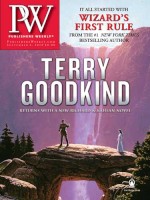During an auction for the audio rights to my new novel, Dracula in Love, my editor forwarded me an e-mail from one of the bidders. "This book is so hot that I can't wait to get home to my wife!" he proclaimed, and then outbid everyone else and presumably went home and made his wife happy.
We were delighted to hear that feedback because during the writing process, we had tortuous debates over just how much sex would be too much. My most trusted readers are my agent, my editor, and my manager (yes, I'm lucky), and each had very different responses. Without giving away proclivities, two on the team kept begging for more, though what one thought erotic, the other sometimes found terrifying. The third loved every sensual drop, but kept reminding us of the puritanical level of the basic American reader, specifically, the literary reader, that elite creature who relies on a host of signifiers to be distinguished from the genre reader. She pointed out that the book had the elements that discriminating readers look for in a literary work: a strong, authoritative voice, painstakingly composed prose, and serious themes. "This book is too rich to have its seriousness dismissed because of the sex scenes," our cautionary voice reminded us. "You know how readers are! They see some sex on the page and assume it's a bodice-ripper."
Let me say that I set out to write something that was both literary and erotic, something that did not hint at searing sex as the chapter closes but truly explored women's sexual pleasure. One of my biggest motivations for reimagining Bram Stoker's brilliant novel Dracula from the female perspective was the hyper-misogyny of the original. Today, the book is often read as a cautionary tale against the unbridling of female sexuality at the end of the 19th century.
In Dracula in Love, I wanted to turn the original story inside out, exposing its underbelly, or its "subconscious mind." A great part of what could not be expressed in any quarter in the 1890s was women's sexual pleasure. In fact, in my research, I discovered case after case in asylum archives of women being committed for having what we today would consider normal sex drives. Stoker's prose is rife with fomenting sexuality; the fun in retelling the tale was to express the formerly forbidden aspects.
Yet I have received huffy complaints from some readers that I did a disservice to the book—that I cheapened both the book and its female protagonist—by including sex scenes. A few readers have expressed "shock" and others have been upset by "the author's need to shock."
Let's dissect this. The point of my books is to give voice to otherwise voiceless females from history and myth, to unlock what has been secreted away in women's hearts and minds for millennia. Historically, women have either been reduced to nothing but their sexuality or stripped of it entirely: the Madonna or the whore. Are we, the "literary," still obeying the ancient good girl/bad girl paradigm that has bifurcated and inhibited women for millennia? Is there a knee-jerk dichotomy in the minds of serious readers: no sex, please, we're literary?
Far from wanting to shock, I wanted to delight, to thrill, and to illuminate in ways that were impossible in the 1890s. I wanted to envelop the reader in the lush velvet of the Victorian era, with its contained and corseted sensuality cloaked with layers of delicate lace, and in some cases, restrained with leather straps and strait jackets. I also wanted to avoid the prevalent literary construct in which female characters explore sexual taboos, but are fraught with shame and self-loathing.
A recent reviewer declared that the sex in Dracula in Love, while erotic, was tasteful, because the writing was more "artistic" than "literary." Precisely what that means, I do not know, but if "literary" implies either the absence of sex, or linking pleasure and self-loathing, I'll take "artistic" any day.
If readers enjoy the literary writer's descriptions of place, of food, of all manner of things appealing to the senses, why shy away from visceral, transporting descriptions of sex? If sex debases women and literature, please tie me up and spank me, then wrap my books in brown paper and sell them from below the counter.
Doubleday published Karen Essex's Dracula in Love last month.



 Volume 257
Issue 35
09/06/2010
Volume 257
Issue 35
09/06/2010





